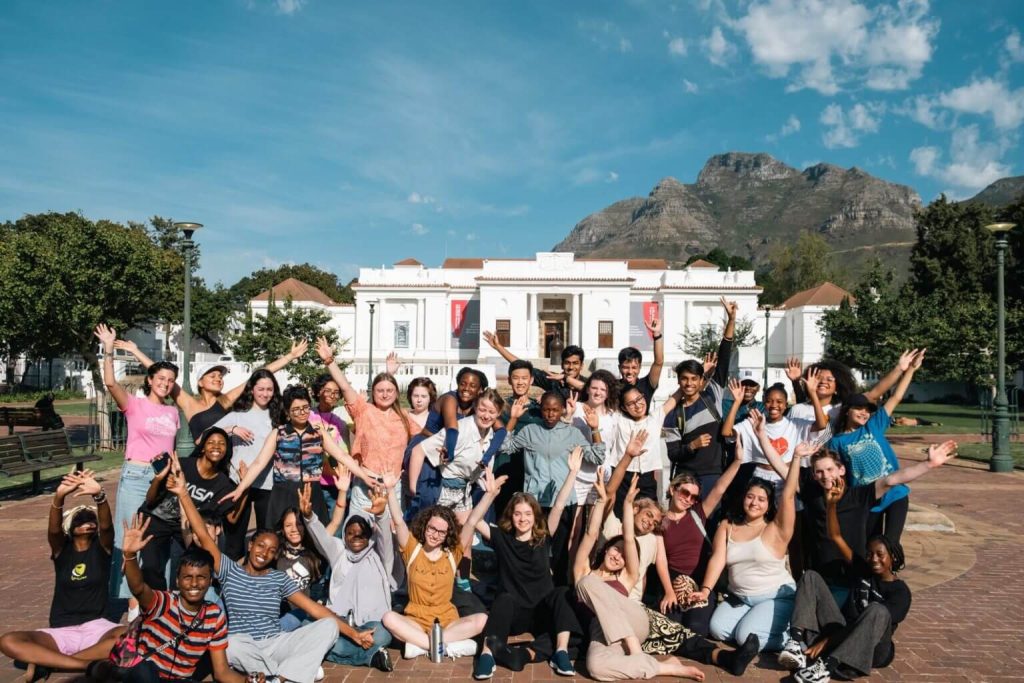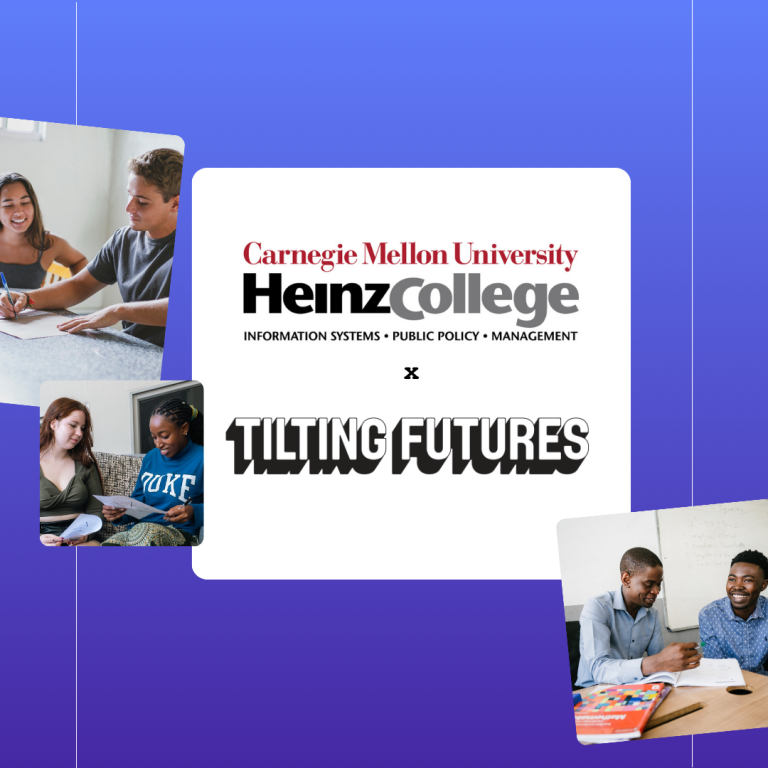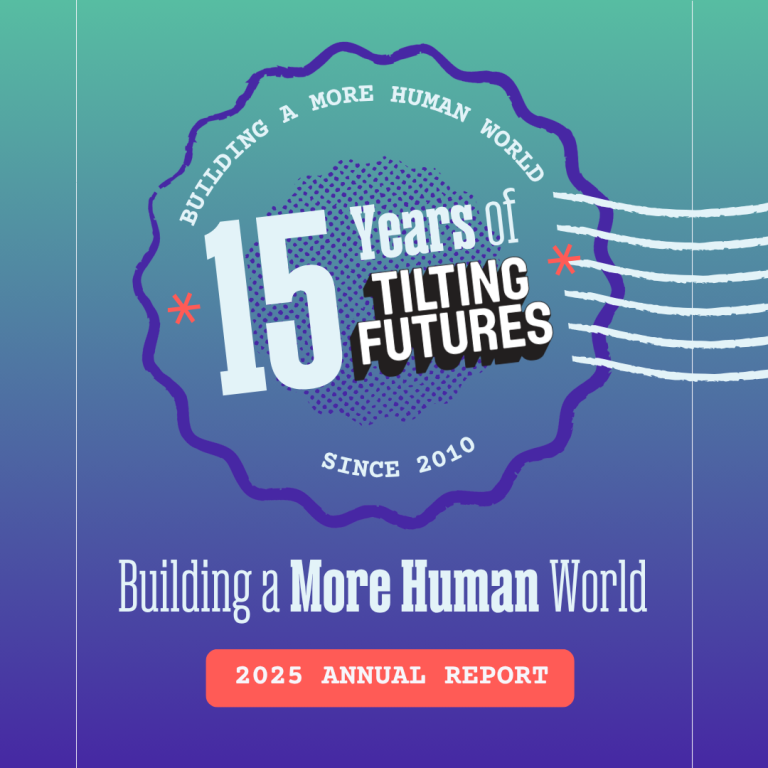For an international immersion program, COVID-19 literally stopped us in our tracks. Like so many educational organizations, we quickly pivoted online. Our team developed Global Citizen Year Academy, a virtual leadership program that allowed us to both increase and broaden our student community. Over two years we were able to reach nearly 1500 young people from 89 countries. When the ability to safely travel returned, we took the opportunity to deeply reflect on the why, how and what of our programming. In a collaborative design process we brought together our incredible educators, alumni, and curriculum designers, as well as insights from Gen-Z students and parents. The result is Take Action Lab, an immersive semester in Cape Town, South Africa, with the plan to add more locations in the coming years.
Here we share the design process of Take Action Lab, framed by a series of questions that started from our first, essential question:
1.What are the pressing needs for today’s young people and for the world?
At Global Citizen Year, we find constant inspiration in the moral courage demonstrated by the rising generation of young people. We knew we had to involve them directly when redesigning our program. We looked at our mission, we drew on our decade of experience, we considered the latest research on youth well-being, and we considered the biggest issues that we face as a world today. The answers were clear: hands-on real life experiences, a desire to make a meaningful contribution towards issues they cared about, to work with others from different backgrounds, to gain concrete skills, and to have joy and hope from their learning. These are the needs that directed our learning outcomes:
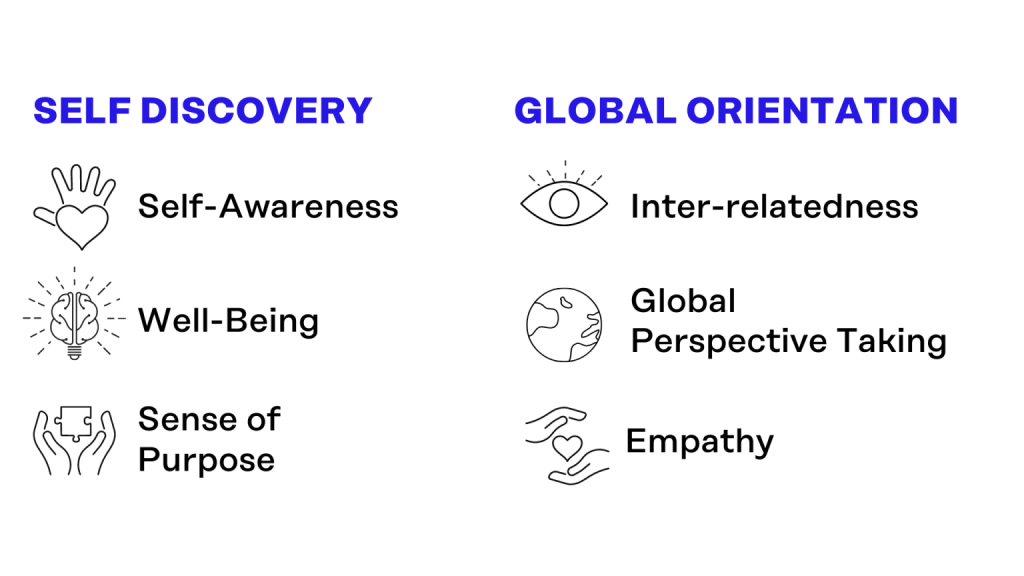
2. How do we design an educational experience that brings alive our learning outcomes?
From the results of our Harvard Impact Study we knew that our leadership curriculum in our online Academy was effective and we were able to channel deeper understandings and reflections through a more structured curriculum. We also knew our in-situ immersive experiences were transformational. Therefore we took the best from both and through a collaborative design experience the arc of Take Action Lab emerged. We backwards-designed against our learning outcomes so that all curriculum and experiences were intentionally connected to the purpose and intended objectives of the program. The four design principles we used were meaning-making, reflection, collaborative learning in and with the community, and experiential learning-by-doing. We will be measuring the impact of our program design against our learning outcomes this year and will make data-informed decisions to iterate on the program.
3. How do we prepare young people to get the most from this experience?
Our formal learning journey starts a full month before traveling abroad! Take Action Lab begins with a four-week virtual course, Foundations: Thinking as a Global Citizen, which prepares students to approach their time abroad with self-awareness, cultural humility, and a learning mindset. Guided by experienced instructors, students reflect deeply on identity, privilege, belonging, and what it means to be a responsible global citizen. This virtual course equips students with an introduction to the historical and social context in Cape Town and connects them with the cohort of students who they’ll be sharing this journey with. This level of preparation is rare among travel experiences, which often don’t offer advance training, or focus solely on learning about the “other” without reflection on the student’s role. The Foundations course works through concentric circles of inquiry, starting with the self and ultimately extending out to the people, place and history of Cape Town, South Africa.

4. How do young people effectively learn and engage with their host community?
At the heart of the Take Action Lab experience is the Practicum: Transforming Intent into Action. Each student is matched with an apprenticeship and mentor at a South African organization advancing a human rights cause aligned with their interests, be that women’s empowerment, food sustainability or refugee rights. For 12-weeks, students collaborate on advancing the organization’s mission, and deepen their own awareness by working alongside experienced professionals and the communities they serve. There is also an incredible group of facilitators who will support students in their learning as well as help them get the most out of all that Cape Town has to offer through cultural immersion experiences. 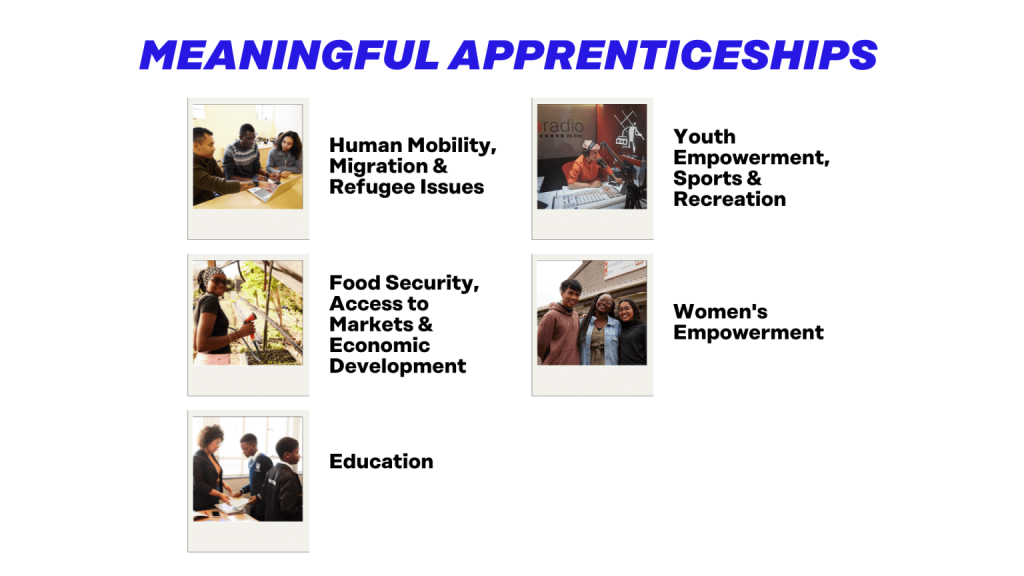
5. How do we make meaning and allow for deep reflection and learning?
The cycle of experiential learning demands ongoing reflection. Educational facilitators meet with smaller groups of students on a regular basis to help them process, reflect and deeply learn from their experience and from each other. This is when new insights about the self and the world emerge and where transformation happens. Importantly, in the final week before students return home, they participate in the final unit of our curriculum, Reflection: Looking Back, Moving Forward. Through guided reflection, students consider how they want to integrate their new perspectives into life going forward. This brings us full circle back to our mission: to broaden students’ perspective of what is possible and to fuel a future of positive impact.
